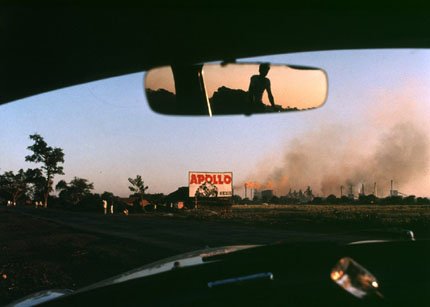Raghubir Singh
dal 9/9/2005 al 12/11/2005
Segnalato da
9/9/2005
Raghubir Singh
Galerie f 5,6, Munich
''Yet no matter how spontaneous and serendipitous, Singh's work always feels precisely calibrated, as if he knew his subject so intimately that he had only to focus his attention and everything would fall into utterly unexpected place." (Vince Aletti). His highly sensitive use of colour and complex image structures span a bridge between Indian and western pictorial traditions, yet it always remains uniquely Indian.

"Yet no matter how spontaneous and serendipitous, Singh's work always feels
precisely calibrated--just right--as if he knew his subject so intimately that he
had only to focus his attention and everything would fall into utterly unexpected
place." (Vince Aletti)
Galerie f5,6 proudly presents the first German solo show as well as a solo
presentation at Paris Photo in November 2005 of world-renowned photographer Raghubir
Singh. His pioneering work in the field of colour photography is currently being
rediscovered. Museum shows at the Tate, London and the Whitechapel and in the US
have recontextualised his work not only within American street photography but also
in relationship to a wider contemporary art practice such as Sarah Lucas, Jeff Wall
, Vito Acconci, Phillip Lorca DiCorcia and so forth Raghubir Singh (b. Jaipur,
India, 1942- d. New York,USA, 1999) is considered one of the most important
photographers of his generation. His name is synonymous with India. In his early
20's Singh was already working for the New York Times and Life Magazine. His first
book in colour was published in 1974, two years before William Eggleston's seminal
Guide, an important contribution to early colour photography.
Close in spirit to Henri Cartier-Bresson, whom Singh first met in 1966, he was
always interested in "catching life's entirety in a single glimpse of a
moment."(Henri Cartier-Bresson). Raghubir Singh has been acknowledged in the US,
along with William Eggleston, Stephen Shore, Joel Sternfeld, as one of the leading
pioneers of colour photography. His highly sensitive use of colour and complex image
structures span a bridge between Indian and western pictorial traditions, yet it
always remains uniquely Indian. This makes Raghubir Singh's work incomparable. Major
American and European Institutions have shown retrospectives of his work. He
published more than 14 books on India and received many International awards.
"The true Indian artist cannot ignore the blessing of colour... Indians know colour
through intuition, while the West tries to know it through the mind. Indeed, India
is a river of colour. In my home in Jaipur, black was a colour we shunned, in spite
of the dinner jackets that the British brought in. We associated it with evil. When
the monsoon breaks and the dusty-brown of the desert becomes a wet-brown dappled by
lush greens, the lariya colour also leaps to life through clothing, its greens and
yellows assuming a consonance with nature. In the summer, pale colours dispel the
heat. At death, the monochrome sheen of white is the colour of mourning; but it is
also a colour of life - it is the colour that bonds life and death, because unlike
black it is receptive to the whole chromatic scale of colour." (Raghubir Singh)
----
next exhibition
F-Paris
Paris Photo (Solo Show)
November 17- 20th 2005
---
Image: Raghubir Singh
Grand Trunk Road, Dungapur, West Bengal, 1988
25 x 37,5 cm / 40 x 50 cm, C-Print, Edition 25
estate print / stamp Raghubir Singh, signed, titled and editioned in ink by the estate verso
Galerie f5,6
Ludwigstr. 7 (Odeonsplatz) . 80539 München
Opening hours Tues - Fr 11-19, Sat 12-17



